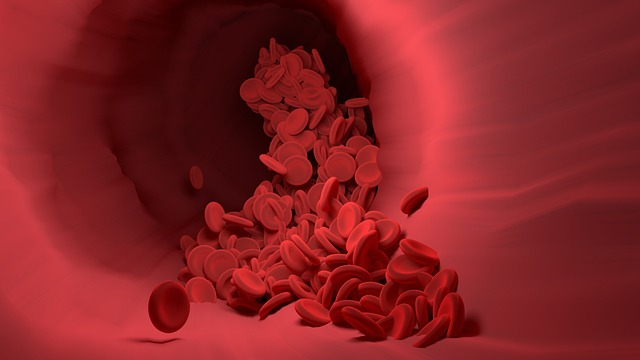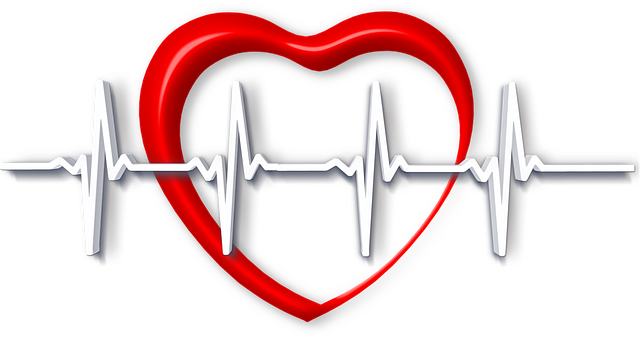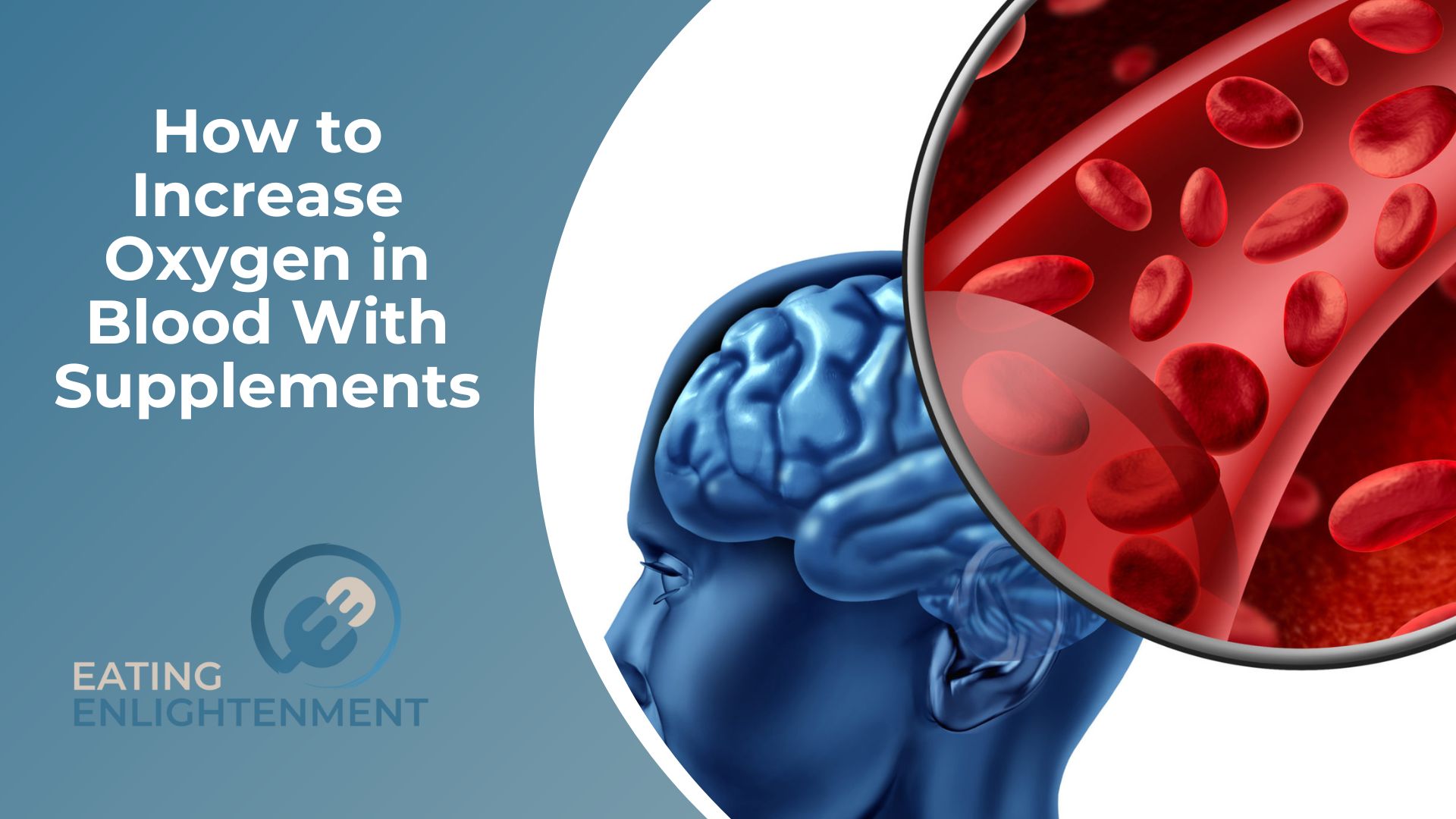Did you know that oxygen is the most important nutrient in the body?
It’s responsible for fueling every cell, and when there isn’t enough of it, we can start to feel tired and run down.
Thankfully, there are supplements that can help increase oxygen levels in the blood.
In this blog post, we will discuss how to measure oxygen levels in blood, and we will also take a look at some of the best supplements available to help increase oxygen levels.
What are typical levels of blood oxygen?

Oxygen saturation (SO2) is a measure of how much oxygen your blood is carrying as a percentage of the maximum it could carry. A normal SO2 reading is 95-100%. Anything below 90% is considered low and may require medical attention.
There are a few different ways to measure blood oxygen levels. The most common method is pulse oximetry, which uses a sensor placed on your finger to measure the amount of oxygen in your blood.
Another method is arterial blood gas testing, which requires taking a sample of blood from an artery. This method is more accurate but also more invasive. For a great resource on Oxygen Levels, read this article from the Minnesota Department of Health.
How does oxygen help the body?
Oxygen is necessary for the body to create energy. It is used by the cells to produce ATP, which is the energy that powers our bodies. Oxygen also helps to remove waste products from the cells, including carbon dioxide.
While we can survive without oxygen for a short period of time, it is essential for life. If our blood oxygen levels drop too low, we can experience hypoxia, which can be fatal.
That’s why it’s important to make sure that our blood oxygen levels are healthy and maintained at a normal level.
What are the benefits of increasing oxygen in blood?
When we breathe in, our lungs take in oxygen from the air and deliver it to the bloodstream. The blood then carries the oxygen to the cells in the body, where it is used to produce energy. Oxygen is essential for cell function, and without enough oxygen, the cells will begin to malfunction.
This can lead to a wide range of health problems, including fatigue, difficulty breathing, and even heart failure. Increasing the amount of oxygen in the blood can help to prevent these problems and improve overall health.
There are a number of ways to increase oxygenation of blood, including exercise, deep breathing, and spending time at high altitudes. By increasing oxygen levels in the blood, we can improve our overall health and well-being.
What are some causes of low blood oxygen?
There are many different causes of low blood oxygen levels, including:
- Anemia
- COPD
- Heart disease
- Pneumonia
- Sleep apnea
- Smoking
Role of food in oxygen production

While supplements can be helpful in increasing oxygen levels in the blood, it’s also important to eat a healthy diet.
Foods that are rich in iron, such as red meat and leafy green vegetables, will help increase the production of hemoglobin.
Vitamin C-rich foods, such as citrus fruits and broccoli, will help the body absorb iron more efficiently.
And foods high in magnesium, such as dark chocolate and pumpkin seeds, can help improve circulation and allow more oxygen to reach the cells.
Eating a healthy diet is an important part of maintaining overall health and well-being.
But if you are looking to increase your oxygen levels specifically, supplements can be a helpful addition. Talk to your doctor about which ones may be right for you.
Foods to improve oxygen levels
Some of the best foods to improve your oxygen levels are:
- Foods rich in iron such as red meat and leafy green vegetables
- Vitamin C-rich foods such as citrus fruits and broccoli
- Foods high in magnesium such as dark chocolate and pumpkin seeds and dark chocolate
How accurate are pulse oximeters?

Pulse oximeters are generally considered to be accurate within 2% for oxygen saturation levels above 90%.
This means that if your oxygen saturation level is 95%, the pulse oximeter will give a reading between 93-97%. For levels below 90%, the accuracy of pulse oximeters decreases.
Arterial blood gas testing is considered to be the most accurate method for measuring blood oxygen levels.
However, this test is more invasive than pulse oximetry and is usually only performed in a hospital setting.
If you are concerned about your blood oxygen levels, talk to your doctor about which method of testing is right for you.
What herbs increase oxygen in blood?
There are a number of different herbs that can help increase oxygen levels in the blood.
Hawthorn berry, for example, is an herb that has been shown to improve circulation and allow more oxygen to reach the cells.
Ginkgo biloba is another herb that can improve circulation and help increase oxygen uptake.
And finally, ginger root is an herb that helps improve circulation and allows more oxygen to reach the cells.
These are just a few of the many different herbs that can help increase oxygen levels in the blood. Talk to your doctor about which ones may be right for you.
Does B12 help oxygen?
Vitamin B12 is a water-soluble vitamin that is necessary for the production of red blood cells. Red blood cells carry oxygen to the cells in the body. Therefore, vitamin B12 is essential for maintaining healthy oxygen levels in the blood.
A deficiency in vitamin B12 can lead to anemia, which is a condition in which the blood doesn’t have enough red blood cells.
Anemia can cause fatigue, shortness of breath, and lightheadedness.
Taking a supplement or eating foods rich in vitamin B12, such as eggs and salmon, can also help increase your levels.
What are the best oxygen supplements?
There are a few different types of supplements that can help increase oxygen levels in the blood. One popular option is an iron supplement.
Iron is necessary for the production of hemoglobin, which carries oxygen in the blood. Another good option is a vitamin C supplement, which helps the body absorb iron.
Another supplement that can help is magnesium, which helps improve circulation and allows more oxygen to reach the cells.
Finally, CoQ10 supplements contain an enzyme that helps cells produce energy and also aids in oxygen uptake.
These are just a few of the many different supplements available to help increase oxygen levels in the blood. Talk to your doctor about which one may be right for you.
What are the side effects of taking supplements to increase oxygen in blood?
People often turn to supplements in hopes of increasing the amount of oxygen in their blood. While some supplements may provide a small increase in oxygen levels, it is important to be aware of the potential side effects. The most common side effect is shortness of breath.
This is because the body is not used to processing such high levels of oxygen and can become overwhelmed. In severe cases, people may also experience chest pain, irregular heartbeat, and dizziness.
If you experience any of these side effects, it is important to stop taking the supplement and contact a doctor immediately. While taking supplements to increase oxygen levels may offer some benefits, it is important to be aware of the potential risks.
How long does it take for supplements to increase oxygen in blood?
It is important to note that there is no one-size-fits-all answer to this question, as the amount of time it takes for a supplement to increase oxygen in blood will vary depending on a number of factors.
For example, individual physiology, the dosage of the supplement, and the timing of supplementation in relation to activity level all play a role.
However, in general, it is believed that most supplements take effect within minutes to hours after ingestion. So, if you are looking for an immediate increase in blood oxygen levels, supplements may be a good option. However, it is always best to speak with a doctor before starting any new supplement regimen.
Are there any natural ways to increase oxygen in blood?
There are a number of different home remedies that can help increase blood oxygen levels.
One of the most effective is to sit up straight and breathe deeply. This will help to improve your lung capacity and allow more oxygen to reach your cells.
Another helpful remedy is to drink plenty of fluids. This will help to keep your body hydrated and allow the blood to flow more easily.
And exercising regularly will also help increase your blood oxygen levels by improving circulation and allowing more oxygen to reach your cells.
How to increase oxygen level immediately
There are a few things you can do to increase your oxygen levels immediately. First, make sure you are breathing deeply. Take a deep breath in through your nose and exhale slowly through your mouth. You should also try to avoid shallow, rapid breathing.
If you are feeling short of breath, sit down and put your head between your knees. This will help increase the flow of blood to your brain. How To Meditate For Beginners: Start With This Breathing Technique
You can also try to drink lots of fluids, especially water. This will help to thin the mucus in your lungs and make it easier to breathe.
Finally, try to stay calm and relaxed. Stress and anxiety can cause your breathing to become more rapid and shallow, so try to take some slow, deep breaths and focus on relaxing your body. By following these simple tips, you can quickly increase your oxygen levels and improve your overall health.
How to Increase Oxygen in Blood With Supplements – Conclusion
If you are looking to increase your blood oxygen levels, there are a number of different supplements and home remedies that can help.
Talk to your doctor about which ones may be right for you. And be sure to stay hydrated, exercise regularly, and breathe deeply to improve your overall health and well-being.
It’s also important to monitor your blood oxygen levels regularly. This can be done with a pulse oximeter or by having an arterial blood gas test performed.
If your levels are low, be sure to talk to your doctor so that you can get the treatment you need.
Read here for more basic info about supplements – Supplements and Vitamins – Ultimate Beginner’s Guide



